Another Timbre TimHarrisonbre
Interview with Stefan Thut
Could you say something about your musical background, and how you encountered the music of the Wandelweiser collective?
Sound and music have played a major role since my early life: I started learning the recorder when I was about six, which was a very common thing to do, and two years later I began playing cello, which became my main instrument. In my childhood I spent a lot of time exploring the sounding possibilities of the instrument aside from learning proper notes. Obviously I felt the need to make my own music. Also there was a grand piano in the living room, which offered fantastic sonic features that I was unable to produce on the cello. I treated the piano in my own way, without knowing anything about Cage's prepared piano music. I particularly enjoyed the times when nobody was at home, when I could build a sound world by inserting various objects such as pencils or plates onto the strings. I remember playing similar successions of sounds and being able to recall them later on, but in those days I never wrote down a note. Today I can’t remember exactly what I did, just the fact that I did it.
In the late 80’s, already familiar to some extent with New Music, I remember following a radio broadcast of Feldman’s second string quartet. I didn’t have time to listen throughout, just in segments, but each time I came back to it I was astonished by the texture of the music; I’d never heard anything like it before. At the same period there was a week-long documentary on Scelsi on French radio, and my mother had to tape all of it for me while I was at school. Again I’d never heard anything like it.
Eventually I studied music at the conservatory to become a professional musician. Since the cello teacher’s repertoire was focused on the classical and romantic period I also looked for other ways of making music: I started to improvise in a group with non-professional musicians using electric cello with sound effects and tape loops. One of the members introduced me to the work of, for example, David Jackman, whose music made a strong impact on me at the time.
I found out about the Wandelweiser Komponisten Ensemble when looking for contemporary solo cello music by Swiss composers. In 2000 I contacted Jürg Frey and Manfred Werder because I wanted to include their work in a programme of radical Swiss positions in composition from the last decade of the 20th century. Finally I had many opportunities to perform at Jürg and Manfred’s concert series, and the chance to meet and perform with other exponents of Wandelweiser.
If I can side-track for a second, I’m interested that you reference Scelsi in that answer. People don’t seem to mention him as a ‘precursor of Wandelweiser’ in the way that, say, Cage and Feldman are often cited, but I think you could argue for a strong connection in his approach to sound. In fact I think the realisation of vier, 1-12 in the Wandelweiser und so weiter box set, which you play on of course, is somewhat reminiscent of Scelsi. Do you feel that there’s any connection?
Yes, the work of Scelsi is seldom mentioned in discussions about Wandelweiser. I think it simply has to do with the fact that Wandelweiser started before periodicals were filled with articles on that obscure composer from Rome, and the Wandelweiser composers already had their own personal backgrounds in place. Also I have a feeling that the founders of Wandelweiser were concerned with other topics than an ecstatic vision of sound. I was influenced or even carried away by Scelsi’s music in the late eighties because it made me happy to finally find something different from what I had heard up to that point. In some way it’s just a question of contingency: whose music you encounter when and where. It’s true that I’m interested in the quality of sound if there is ‘a note’ to play, but then with Scelsi once a sound has started it never stops until the piece comes to its end. In other words, I can’t find much of a sounding world outside of his compositions. In fact years later I was fascinated, if not even relieved, by listening to a performance of works by Wandelweiser composers that included so many – classically speaking – pauses. It’s these rests that changed the conception of listening for me. But to be brief: for me the work of Scelsi is a part of my own personal listening history, something that made my mind resonate a lot at one time.
That’s interesting; the ‘pauses’ that you responded to in Wandelweiser music, and which allow, as you put it, for a sounding world to exist outside of or alongside the composed work, are clearly significant in your music. Do you see these ‘pauses’ as similar to the concept of ‘silence’ in much of Cage’s work, or is that not a point of reference for you?
These pauses not only reveal a sounding world outside of the work but they also allow whatever has been heard before to settle (whether those sounds were intentional / performed or not). The situation of alternating silence and sound offers a chance to linger with the sound(s) from before in the moment of the performance. With every new sound – especially if it was the same pitch played by the same instrument – an object starts to evolve in my mind, imagining its concrete materiality.
In my work the incorporation of silence certainly has to do with knowing about Cage – and since every silence always contains sound, there is a differentiating situation at work when alternating what is usually called ‘silence’ and sound. While listening to many of my pieces there are moments when one’s attention shifts to the ‘outside’ of the composed work. The material becomes more silent than the surrounding silence, even though the latter is thought of as the silent part of the situation. Exploring the relationship of these two components is what interests me at the moment. And thinking about composition, I ask myself what kind of sounds could be added to the sounding world since there are already sounds occurring at every moment. Through the use of insignificant material I try to leave scores like vier, 1-12 permeable for the sounding world outside of the score.
Yes, that notion of ‘the sounding world’ is a fascinating one, which evidently connects with Manfred Werder’s recent work – the idea that the world is in a sense already its own ‘work’, and the composer need only frame a moment of the world’s sounding, and let it be heard. So you and Manfred have both produced works which are ‘just’ field recordings of a particular environment at a particular moment, with no sounds added. As I say, I find this extremely interesting, but wonder whether there’s a romanticism about ‘nature’ underlying this approach, or a kind of ‘audio-pantheism’.
I’m glad you put the word ‘just’ in inverted commas because the works in question deserve to get looked at more closely. First I’d like to differentiate between a score and the realisation thereof. These are two different things. A score in itself reflects the composer’s conception/thought/idea/strategy by appearing as words, signs, spaces; whereas a recording or a performance (or a combination of the two) is a manifestation of a sounding possibility in relation to the score. The reason you bring ‘romanticism’, ‘nature’ and even ‘audio-pantheism’ into the discussion has to do with the fact that in many interpretations of so-called ‘field-recording-scores’, the musical material is determined as that of the environment. So to a certain extent, yes – ‘audio-pantheism’ – because the work gains by being connected to the world as ‘sounding world’ wherever it may be. On the other hand I think that the term overstates the issue. Pantheism is one of many propositions for a concept of God and implies experiencing the divine in nature. But in our case I think it’s still a question of listening to a work as an aesthetic experience.
To me themes of romantic senses of life, like being affected by the notion of infinity, seem to allude to the musical praxis we are talking about. For instance, in my score an ort, 1-9 which draws on ‘field recording’ practice, I had in mind a conception of ‘place’ as an infinitely sounding object. The score suggests a repeated action - that of parcelling nine segments out of the space-time-continuum. What I am interested in with this score is more than just listening to ‘nature’; it’s allowing a process to occur in each single unit, and, more apparently, by going from one unit to the next. Surprisingly a sound (that of one unit) is abruptly followed by another sound, and is overlaid in the moment of perceiving it. So I’m interested in having an experience at the level of sound similar to that when a canvas of the same size is painted over nine times. What remains in one’s memory after having heard the work? Since the score deals with the timespan of a year, its ending collides with its beginning and sets off a cyclical series that would again remind us of infinity. However, converging on infinity by means of an artefact is impossible due to man’s own finitude.
To come back to your question, I think that those scores of mine with obvious connections to ‘nature’ also contain their own specific features and questions about themes such as time, as in an ort, 1-9, about qualities of space, as in aussen raum, about determining time but not space, as in equinox/solstice, or about approaching a tiny part of a pure phenomenal world of sound, as in am wind.
Modernist and avant-garde traditions often define themselves in opposition to romanticism, but your answer suggests a more accommodating position. Wandelweiser music is clearly not exploiting emotions in a gushing way, but for me often contains a strong emotional charge, and I think that a sensual element is unavoidable in music in general. Do you agree with this?
Let’s bear in mind that music and the sounding world address one of our primary senses: that of hearing. Usually hearing is followed by a chain reaction of all kinds of associations which are very much dependent on the history of each individual’s mind. I tend myself to avoid following an immediate chain reaction because then I have the feeling that it’s only me producing these side effects.
Creating a listening situation for others through a score is one side of the structure – on the other side one or many listener(s) complete(s) the setting. I think that if you keep this primal set-up in mind, then there’s a great potential not just for sensual elements but also for other types of percepts.
So generally speaking yes, music is directly linked to the sensual, if the sensual is taken in a literal meaning as the starting-point of perceiving music at all. For me this also applies when music is narrowed down to a few hardly decipherable occurrences. In such situations every incident becomes valuable - even the sounds of one’s own body. I experience an enhanced type of the sensual where the outcome of a composition is not ‘a matter of facts’ but a point of departure.
At the moment I find it intriguing to draw a parallel between compositional strategies and the concept of homoeopathy in the sense of the more the essence is potentised (diluted) the deeper and longer lasting its effect. Transferring the idea to language utilised in composition, I discover an inviting potential in words like ‘passing’ or ‘to give way’ in order to circumscribe qualities of sound.
Go to Wandelweiser und so weiter main page
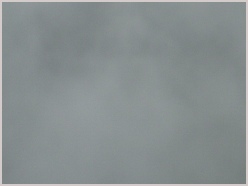
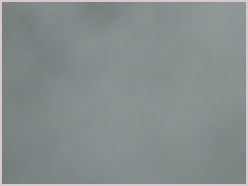
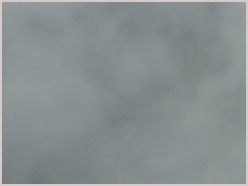
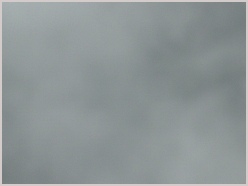
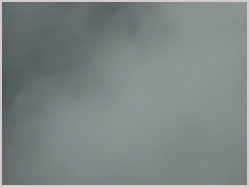
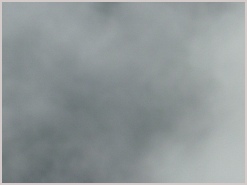
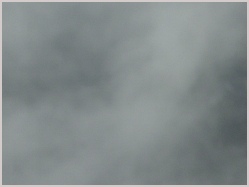
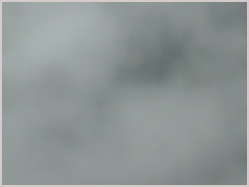
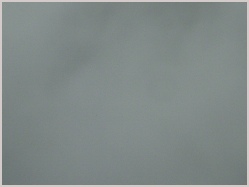
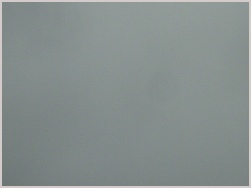
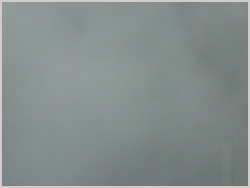
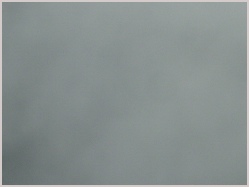
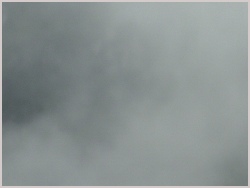
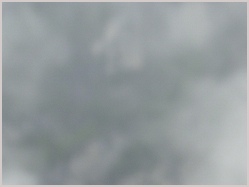
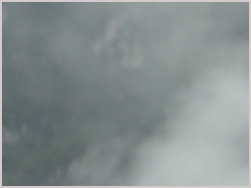
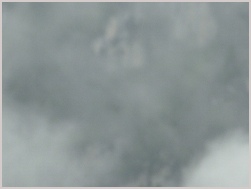
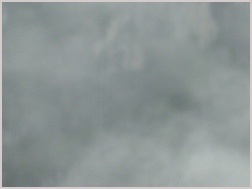
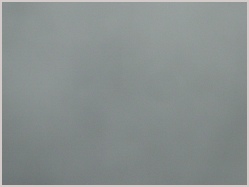
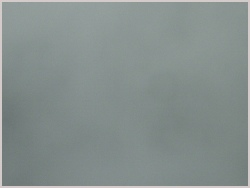
Photographs: ‘19 Events’ by Stefan Thut